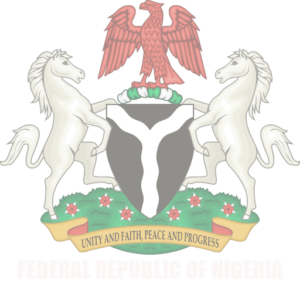
Digital Identity simply put refers to the means of electronically authenticating or verifying the identity of an individual or entity (e.g. businesses, agencies, organizations, etc.).
This usually involves identifying the person or entity over a secure Internet connection thereby granting a wider, worldwide reach to users of services reliant on verified identity.
This is what makes the use of POS devices, ATMs, online transactions, and so on, possible today.
The National Identity Management Commission (NIMC) is the organization mandated with providing Nigerian citizens and legal residents within the country, the means of authenticating and verifying their identities nationally and internationally when engaging in all sorts of transactions be it financial, social, legal, insurance-related, travelling, educational, and many more.
Learn more about NIMC’s mandate >>
The National Identity Database maintained and kept secure by NIMC provides the central storage point for identity data which all individuals, businesses, Government agencies, financial institutions and organizations link to for identity authentication and verification services during their transactions.
For so many individuals and entities to get authorized, secure access to such an identity service from anywhere around Nigeria and the world, a digital system is required thereby providing the secure link to the National Identity Database.
Hence, the use of a Digital Identity System.
The World Bank, European Union (EU) and Agence Française de Développement (AFD), a French developmental agency, have partnered with NIMC to fund and set up the Digital Identity Ecosystem in Nigeria.
Learn more about the Digital Identity Ecosystem>>
Evolution of Digital Identity
The evolution of current Digital/Information Age has led to a change in many of the ways we live our lives today, not just in the field of identity. The rise of the Internet and proliferation of mobile devices has helped boost this change mostly for the better.
Once upon a time, if you lived in Kano City and needed to communicate with someone in Lagos City, you would need to travel to Lagos. Then things got easier, you could write a letter and have it delivered to Lagos. Then came the telephone, you could now call and talk to the person in Lagos. In the Digital Age today, you can call the person, send an email, chat over social media (WhatsApp, Twitter, Facebook) or even have a live video conference with the person.
Likewise, there was a time when the only way to buy things was to carry your cash to a shop and make a purchase. Look at life today – you can sit at home and shop online using your credit or debit card, Paypal, Bitcoins or other digital currencies.
One of the most important things when communicating with someone or purchasing things from them is being able to identify them and yourself.
The act of identification has also been affected by the Digital Age.
Where once you could identify yourself or another person only with a paper certificate, then an ID card, today you can identify anyone even more accurately using their digitally captured biometric (fingerprints, retina scans, facial capture, height, etc.) and demographic (age, address, gender, etc.) details from anywhere you are in the world using identification numbers, verified online shopping IDs, electronic chips, mobile devices and even trusted social media profiles.
It is important to note that use of digital identity (or digital versions of any other product or service for that matter) doesn’t necessarily mean the older ways of doing things have been rendered totally unusable. Indeed, in some cases you may still need to use your paper Birth Certificate for instance.
However, in the modern world today, the vast majority of secure transactions are being carried out digitally (even when you present your paper certificate for verification, details from it will still have to be keyed into a computer and transferred or stored digitally).
Security and privacy protection are pivotal in the use of Digital Identity.
The National Identification Number (NIN) which ties all individual’s biometric and demographic identity data to one secure, digitally accessible number on the National Identity Database enables NIMC to provide secure digital identity services across Nigeria and beyond.
Some Common Misconceptions
- NIMC main purpose is not the issuance of the National e-ID Card alone. From its mandate covering everything from the NIN to the National Identity Database and enforcement of National Identity-related regulations, one can see that the Commission’s has a wider scope of responsibilities covering the provision of identity products and services to Nigerian citizens and legal residents.
These products and services are meant to provide a variety of means for persons and entities to be able identify themselves during their everyday transactions and could be via the use of the NIN, e-ID card, mobile app, NIMC Verification Services or data harmonization and integration services.
An easy way to think of is looking at banks – the banking industry’s main purpose is not the issuance of ATM cards alone, but the provision of financial products and services. - The NIN does not confer Nigerian citizenship on anybody, it can identify a person who is already a citizen or legal resident. Losing your NIN slip does not lead to you losing your citizenship. Nigerian citizenship matters are handled by the Nigeria Immigration Service. If you cannot remember your NIN, visit any NIMC office near you for assistance or use the *346# SMS phone service.
Benefits of Digital Identity
- Providing easy identification of individuals and entities in the Digital Age of electronic/mobile transactions and communications.
- Multiple means of providing a single, unique identification over a vast selection of media worldwide.
- Enabling a boost to the Nigerian economy by providing access to online global commerce (Paypal, Amazon, eBay, etc.) currently inaccessible to many people in Nigeria and preventing online payments into the country due to a lack of trusted, verified identities required by online companies.
- Convenience – rather than carry a whole host of documents and cards, providing your NIN alone generates your required details on the systems of authorized vendors (banks, airport checks, hospitals, government agencies, etc.).
Learn more about Your NIN in Action >>
Watch a video on the NIN and Digital Identity:






